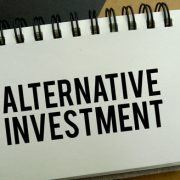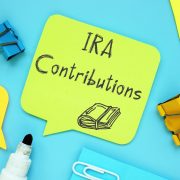What Kinds of Loans Can Self-Directed IRA Investors Use?
When thinking about it from a Self-Directed IRA perspective, there are generally two types of loans they can use: there are the loans that Self-Directed IRA investors make (such as private notes) that serve as assets in the account. But there are also loans that investors can take out from Self-Directed accounts. While it’s worth exploring both, and there are certain types of loans that Self-Directed Solo 401(k) owners can take from their accounts, we want to focus this article on the basics of Self-Directed IRA lending as the lender. Let’s explore.
What You Need to Know About Self-Directed IRA Lending
For many people, getting a loan can seem like jumping through a lot of hoops. Between poor credit and other issues that they run into; it can mean that they don’t get the terms they want out of their loan from a bank. But there are also smaller lenders to turn to; many of whom loan from a Self-Directed IRA.
From the lender’s perspective, lending from a Self-Directed IRA can include underwriting procedures to provide quick funding on the loan. Borrowers can then sometimes pay interest rates that may be above the market rates for bank loans.
This isn’t to say that there are any guarantees in the world of loaning money. If there were, then every investor would probably become a lender in an environment with such low interest rates. However, it’s worth exploring the different types of loans and notes that an investor can hold within a Self-Directed IRA, and what they mean.
Different Types of Loans from a Self-Directed IRA
When you loan someone money from an IRA, you’re creating debt. The borrower then owes you a certain amount of money, plus interest. This creates an asset for you. However, that’s not the end of the story. You also have to consider the reason for the loan, whether or not that loan is secured, and a host of other potential questions before you make your first loan. Let’s explain some of the key Self-Directed IRA investing options for you to consider:
- Mortgages and trust deeds. For investors who need a sudden influx of cash because of something like a real estate deal, there may be no other place to turn to but to create debt. From the perspective of the IRA lender, mortgages and trust deeds can be reasonable investments because people are more likely to prioritize paying back a mortgage. These loans can potentially be secured with underlying real estate assets as well.
- Secured and unsecured notes. A “secured” note is one that is backed with underlying assets to ensure that the lender has some recourse if the borrower is unable to make payments. Unsecured notes don’t have this feature. For this reason, it will be up to you to decide what kind of loan you want to make with your IRA; both are available within the Self-Directed IRA options, but you’ll be the one making the decision here.
- Business loans. People who borrow money for a business can create opportunities for investors who lend the money, especially if the business has a significant chance of succeeding and paying back higher interest rates.
- Car notes. One of the most common types of loans in the United States is the car loan, and it’s also a possibility for investors with a Self-Directed IRA to issue car notes and lend someone the money.
Of course, using retirement money for these purposes requires that you don’t transact with disqualified persons. For that reason, it’s important to read up on the rules before you make any decisions.
Interested in learning more about Self-Directed IRAs? Contact American IRA, LLC at 866-7500-IRA (472) for a free consultation. Download our free guides or visit us online at www.AmericanIRA.com.









